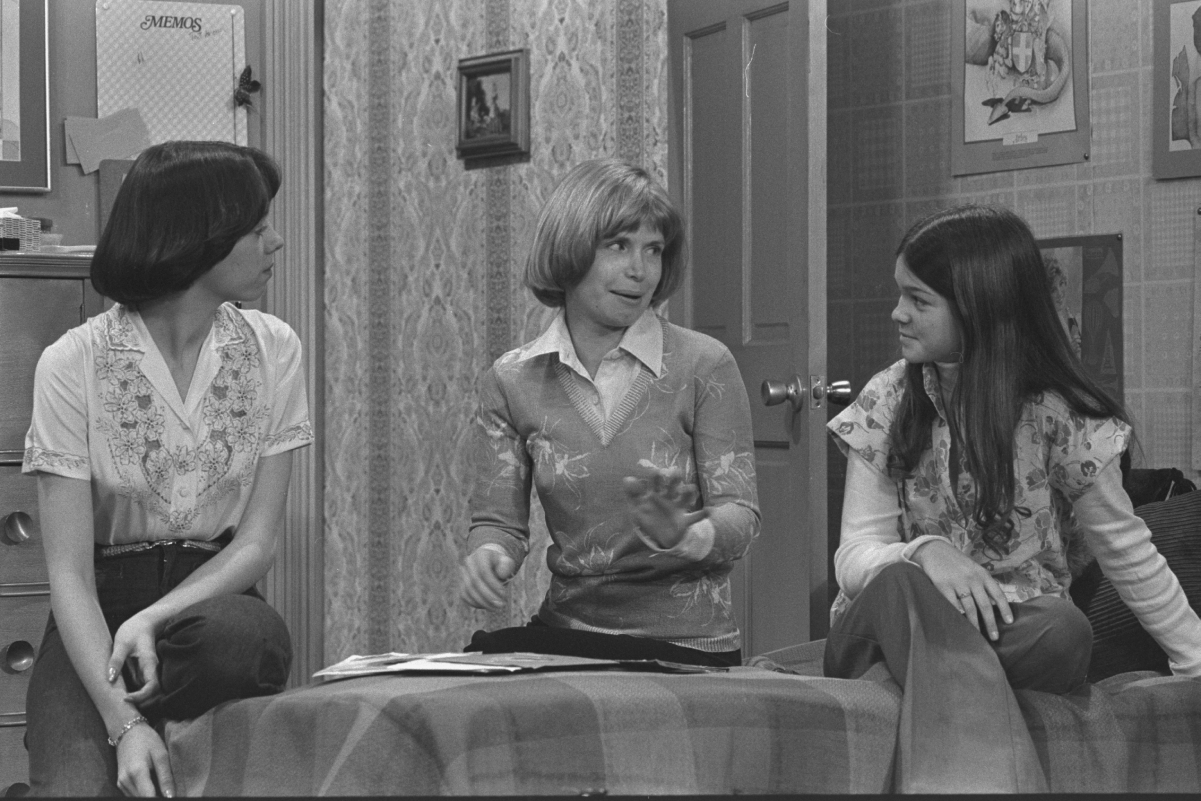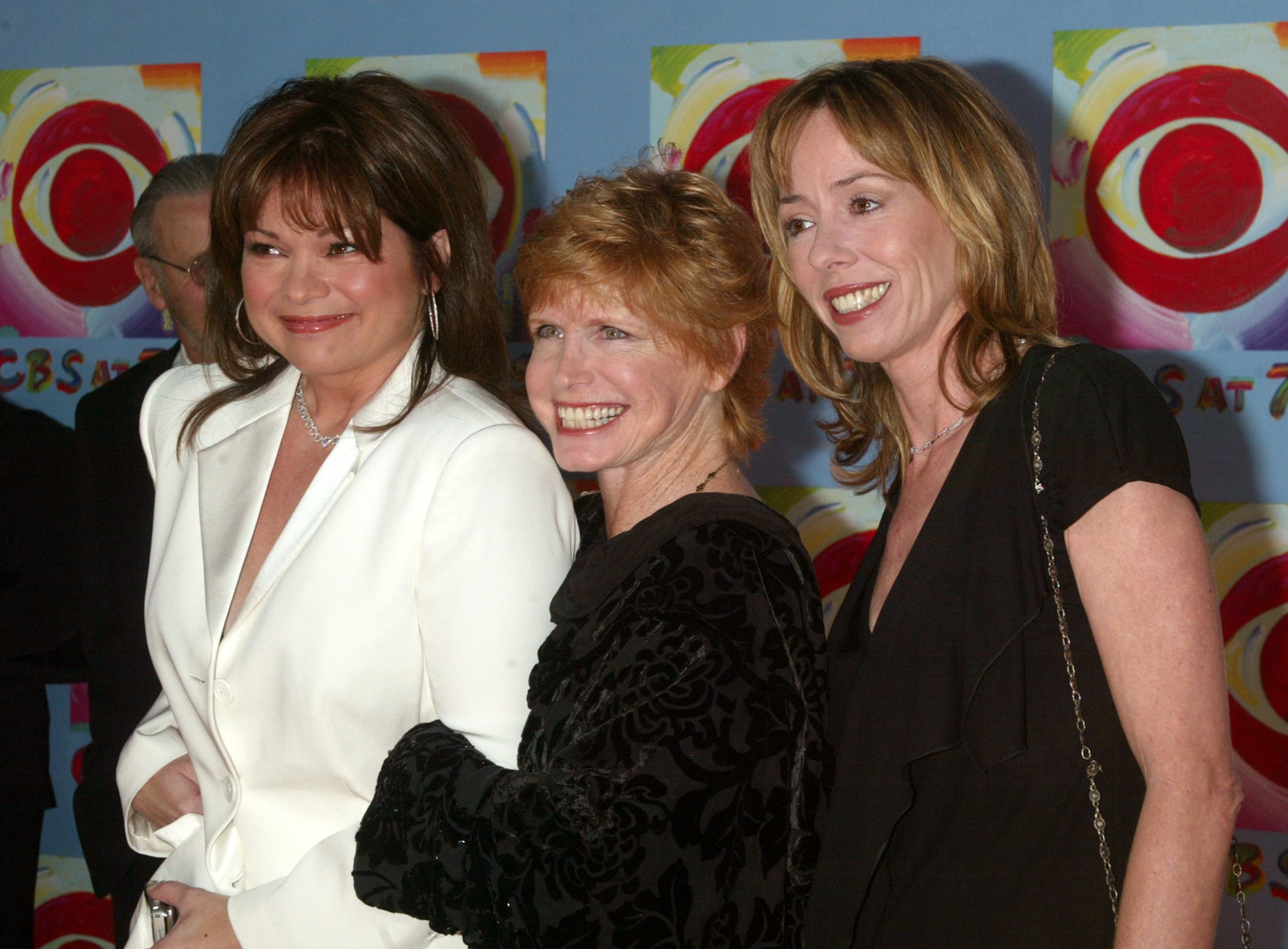‘One Day at a Time’: Norman Lear on How He Knew Bonnie Franklin Had to Play the Mom on the Comedy
The 1970s situation comedy One Day at a Time was a hit right out the door. Starring Valerie Bertinelli as Barbara Cooper, Mackenzie Phillips as her sister Julie Cooper, and Bonnie Franklin as their mom Ann Romano, the program was one of the first with a single mother as a lead character.
Casting the CBS comedy was none other than producer Norman Lear, who shared in his memoir Even This I Get to Experience that choosing Bonnie Franklin was a no-brainer.

‘One Day at a Time’ was an edgy new comedy in the 1970s
In his book, Lear provided the background to the series that ran for nine seasons on CBS beginning in 1975.
It all began when producer/writer Allan Manings and his wife, Whitney Blake, who had starred in the 1960s sitcom Hazel, came up with the idea for a TV comedy centered on a divorced woman raising two teenage daughters. Clearly, the show proposal was a labor of love for the couple, considering they’d persisted in seeking a television home for it for a decade, according to Lear.
“‘What happened to Ibsen’s Nora after she leaves the Doll’s House?’ was the question they were asking, and they’d been trying to sell the show for 10 years,” he wrote. “As the father of three daughters, two of them teenagers, I loved the idea, and over time we developed Ann Romano, her daughters Julie and Barbara, and a backstory that had them moving to Indianapolis after Ann’s divorce into an apartment building.”
Lear said he ‘fell in love’ with Franklin for the role of Ann Romano
For the part of older sister Julie, Lear said Phillips, “popular for her part in George Lucas’ American Graffiti and daughter of John Phillips,” of the 1960s band The Mamas and the Papas,” was a “shoo-in.”
Bertinelli, he said, “bore a certain resemblance to my youngest daughter, Maggie,” and was quickly hired to play Barbara.
As for Franklin, Lear added, “we read a number of actresses who would have been good in the role [of Ann Romano], but Manings and I fell in love with Bonnie Franklin, whose look and personality clashed with the general perception of a divorced woman and mother of teenage daughters.”
The actor, whose blue eyes and short red hair made her look younger than her years, was cast to play the mother of teenagers, a detail that was not lost on CBS. The network initially resisted hiring Franklin, Lear explained, envisioning protests and criticisms of a character who seemed to have become a mother as a teen herself.
“Bonnie was 31 at the time, and a young-looking 31 at that,” Lear recalled. “There was also a certain spunk and fire to her personality that added to her youthful look. We found her irresistible but didn’t think the network unreasonable to advise against casting her as the mother of teenage daughters, one of them 16.”
Despite the word of caution from CBS, Lear took a chance on Franklin, and, ultimately, it paid off.

Valerie Bertinelli said Frankin was like another mother to her
In her memoir Losing It, the former Hot in Cleveland star described meeting Franklin, who died in 2013 of pancreatic cancer, for the first time.
“She gave me a warm hug and said, ‘I’m going to be your new mother.’ Then she introduced herself to my mom. ‘I’m her new mother.’ We loved her immediately.”
While Franklin had red hair just like Bertinelli’s mother, the actor wrote that this was where their similarities ended: “The only thing my mom and Bonnie had in common were red hair and freckles. Only 31, Bonnie wasn’t old enough to be my mother.”
Bertinelli expressed gratitude for the “special way” Franklin “drew me in and made us close. She was like a hip, younger complement to my real mom.”


